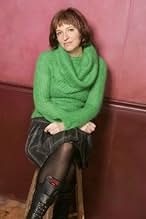IMDb-BEWERTUNG
7,5/10
12.228
IHRE BEWERTUNG
Zwei Brüder müssen sich mit wechselnden Rollen und einer veränderten Familiendynamik auseinandersetzen, als der eine in den Krieg nach Afghanistan geschickt wird.Zwei Brüder müssen sich mit wechselnden Rollen und einer veränderten Familiendynamik auseinandersetzen, als der eine in den Krieg nach Afghanistan geschickt wird.Zwei Brüder müssen sich mit wechselnden Rollen und einer veränderten Familiendynamik auseinandersetzen, als der eine in den Krieg nach Afghanistan geschickt wird.
- Regie
- Drehbuch
- Hauptbesetzung
- Auszeichnungen
- 13 Gewinne & 21 Nominierungen insgesamt
Rebecca Løgstrup
- Camilla
- (as Rebecca Løgstrup Soltau)
Waleed Elgadi
- Samial-Tariq, Afghanistan
- (as William El-Gardi)
Empfohlene Bewertungen
"Brothers (Brødre)" is a Danish "Coming Home" crossed with "Deer Hunter" and the novels of Tim O'Brien with the added frisson of Cain vs. Abel, as updated to the war on terrorism in Afghanistan.
While I can understand how this is a new experience for Danes, it could have more impact for someone who has never seen a post-Viet Nam War movie. Otherwise it's like a fairly predictable cable TV movie about post traumatic stress syndrome on a channel that allows four letter words, including as has been done in British television films about returning peacekeepers from the Balkans.
The excellent acting rose above the stereotypes to make it very moving anyway, including very natural child actors who were very un-Dakota Fanning-like.
Nikolaj Lie Kaas is particularly charismatic on screen, even more than he was in "Reconstruction," and should now be in the international pantheon of rugged male stars who play "bad boys" really well, emphasized by portraying brunettes in the land of the blonds. So I give director/co-writer Susanne Bier extra credit for not fulfilling the most obvious direction of the plot, but instead letting tension hang in the air, which is more powerful.
Connie Nielsen, using her native language, has warm and charged chemistry with both her co-stars, but is pretty much just the beautiful wife/mother.
Unfortunately, the distributors didn't spring for American English subtitles so you have to interpret Brit slang as if you're watching BBC America. (I did learn in one instance that the F word sounds pretty much the same in Danish as in English but the subtitles didn't match that sound again so I was wondering what other curse words were being replaced with the fundamental English one.) Some times the translation is just plain confusing; for example, the word "assaulted" seems to have a different connotation than something in the Danish dialog, as a plot point gets confused for a subtitle reader. The translation is particularly a problem during a critical scene where the older girl has an outburst, as it's quizzical how scatological her terms were in Danish as opposed to the English choices to understand how incendiary the scene really is.
The Afghans are uniformly shown with the same level of subtlety as North Vietnamese, let alone Nazis, in prisoner-of-war movies. It is ironically interesting that English is now the lingua franca between freedom fighters everywhere.
The cinematography is beautifully color saturated, but is grainy; perhaps it's blown up from video.
While I can understand how this is a new experience for Danes, it could have more impact for someone who has never seen a post-Viet Nam War movie. Otherwise it's like a fairly predictable cable TV movie about post traumatic stress syndrome on a channel that allows four letter words, including as has been done in British television films about returning peacekeepers from the Balkans.
The excellent acting rose above the stereotypes to make it very moving anyway, including very natural child actors who were very un-Dakota Fanning-like.
Nikolaj Lie Kaas is particularly charismatic on screen, even more than he was in "Reconstruction," and should now be in the international pantheon of rugged male stars who play "bad boys" really well, emphasized by portraying brunettes in the land of the blonds. So I give director/co-writer Susanne Bier extra credit for not fulfilling the most obvious direction of the plot, but instead letting tension hang in the air, which is more powerful.
Connie Nielsen, using her native language, has warm and charged chemistry with both her co-stars, but is pretty much just the beautiful wife/mother.
Unfortunately, the distributors didn't spring for American English subtitles so you have to interpret Brit slang as if you're watching BBC America. (I did learn in one instance that the F word sounds pretty much the same in Danish as in English but the subtitles didn't match that sound again so I was wondering what other curse words were being replaced with the fundamental English one.) Some times the translation is just plain confusing; for example, the word "assaulted" seems to have a different connotation than something in the Danish dialog, as a plot point gets confused for a subtitle reader. The translation is particularly a problem during a critical scene where the older girl has an outburst, as it's quizzical how scatological her terms were in Danish as opposed to the English choices to understand how incendiary the scene really is.
The Afghans are uniformly shown with the same level of subtlety as North Vietnamese, let alone Nazis, in prisoner-of-war movies. It is ironically interesting that English is now the lingua franca between freedom fighters everywhere.
The cinematography is beautifully color saturated, but is grainy; perhaps it's blown up from video.
We all know that American cinema can't help itself to do remake of foreign films... That's why i saw Brothers before this original danish movie. When in this one all appears to be shot in steady cam, the American way tries to put some melodramatic trigger.
This version is about feelings, about situation and personal change: life make us evolve like every decision we take and nothing is good or bad, there is a lot of in between. The chose to accumulate the short shootings, practically no music or just a few notes on one instrument,are trying to bring us along this day to day story really well interpreted. The characters in their flaws or every day basis are believable, there is not so much emphasis like in the good but too much American film. It's in their nature to modify, adjust the deepness of the movie and after seeing this 2004 version, we actually miss something: this authenticity.
In both versions, dialogs, ellipses are exactly the same, but characters turned out to be different. We actually have to exact opposite films and this is a real challenge to see both.
This version is about feelings, about situation and personal change: life make us evolve like every decision we take and nothing is good or bad, there is a lot of in between. The chose to accumulate the short shootings, practically no music or just a few notes on one instrument,are trying to bring us along this day to day story really well interpreted. The characters in their flaws or every day basis are believable, there is not so much emphasis like in the good but too much American film. It's in their nature to modify, adjust the deepness of the movie and after seeing this 2004 version, we actually miss something: this authenticity.
In both versions, dialogs, ellipses are exactly the same, but characters turned out to be different. We actually have to exact opposite films and this is a real challenge to see both.
It's rare to find a movie with a meaningful, political context that is also good drama. Brødre / Brothers has two interwoven story lines: one about the relationship between two brothers, the other about the difference between comfortable Western civilizations sending out soldiers to various missions and the actual war zones. These stories mirror each other and both brothers change roles during the movie: One starts in prison, the other ends up there; one is a family man; the other takes over this role after his brother's death. There is a nice ending, but I find that the only element not fitting the overall structure.
I like this also because it is well edited. Synchronization of images is used to tell the story of Michael in Afghanistan and Sarah in Denmark. Frequently a shot of Afghanistan is shown and directly followed by the same shot in Denmark: looking at a road, from a bus or car, etc.
Initially rhythm is established through a central 'Afghan' theme song. Once the characters are established in our minds, the acting takes over. I'm still wondering why Danish actors (and Scandinavian actors in general) are so good in what they do: Is that a compulsory subject in primary school there because even the children act so unbelievably natural.
The ethical dilemmas facing soldiers are well presented. Michael first has to demonstrate how a launcher works, knowing it will be used against his own people. Then comes the ultimate decision. The traumas he faces are real and reminded me of actual, similar stories of soldiers returning from Bosnia, Afghanistan or Iraq.
Susanne Bier has come out of the Dogme-movement as one of the better directors. In a world with not that many (talented) female directors she is someone to be cherished.
I like this also because it is well edited. Synchronization of images is used to tell the story of Michael in Afghanistan and Sarah in Denmark. Frequently a shot of Afghanistan is shown and directly followed by the same shot in Denmark: looking at a road, from a bus or car, etc.
Initially rhythm is established through a central 'Afghan' theme song. Once the characters are established in our minds, the acting takes over. I'm still wondering why Danish actors (and Scandinavian actors in general) are so good in what they do: Is that a compulsory subject in primary school there because even the children act so unbelievably natural.
The ethical dilemmas facing soldiers are well presented. Michael first has to demonstrate how a launcher works, knowing it will be used against his own people. Then comes the ultimate decision. The traumas he faces are real and reminded me of actual, similar stories of soldiers returning from Bosnia, Afghanistan or Iraq.
Susanne Bier has come out of the Dogme-movement as one of the better directors. In a world with not that many (talented) female directors she is someone to be cherished.
10doctorow
Best picture we've seen in 2005. Why can't Hollywood make movies like this any more? Great cast, great direction, dialogue perfectly written comes through with power even in Danish with English subtitles! Connie Nielsen is in a league with Myrl Streep as an actress. The portrayal of the rough and tumble relationship of the brothers is so real it seems alive. Make sure you see this movie either in the theatres or on DVD. Nielsen is gorgeous but realistically portrays a housewife. The parents are classic Scandinavians, stolid and down to earth. Two little girls are played with zest and great energy. And the brothers, are quite believable as brothers. If you are interested in serious cinema and grown up movies "Brothers" should be on your list.
The Danish film "Brothers" 2004 aka Brodre, w-d by Susanne Bier, is NFE (may not be for everyone). It's about love, a showdown of emotions (the opening music and repeated strains remind me of Sergio Leone's spaghetti western sounding tone). The fact that Michael ('Tour De Force' performance from Ulrich Thomsen of "The Celebration" 1998 aka Festen) keeping his traumatic experience within himself, unable to share with anyone, even his dear wife, is a sobering thought from the post-war effects. He's full of paranoia and is suspicious of everyone around him. It's so hard on him, on family members/children who do not understand what he had gone through that affected his 'warped' emotions and predicament. We cannot weather trauma alone.
As audience, we were privy to what happened to Michael as a prisoner of war - we saw what he had to experience - the circumstance and 'no-choice' decision at the time. His determined will focused on 'must stay alive to see his family and loving wife again' kept him hanging on amidst fear and uncertainty under the atrocities/ravage of war. Learning to forgive oneself - to not blame yourself - is not easy to do. What happen happened under circumstances out of your control and yes, it's easier said than done to say that you mustn't bear the burden or guilt feeling within you. We need the love and support of family/people around us - to be able to trust them that they would listen and understand.
Connie Nielsen as Michael's wife Sarah and Nikolaj Lie Kaas as Michael's younger brother, Jannik, provided an insightful portrait of the triangle of relationships that thrived and yet to survive. In the opening of the film, Bier has on screen along with intriguing graphic imagery and an eye close-up: "I will always love you. That is the only truth that remains. Life is neither right nor wrong, good or bad. But I love you. That's all I know." Towards the end, the graphic imagery and the eye repeated: "Life is neither right nor wrong, good or bad. But I love you. That's all I know."
I caught on Sundance Channel, Dutch documentary filmmaker Heddy Honigmann's "Crazy" 2000, provides 'unpresuming' accounts of how some of the once Dutch soldiers or former workers of UN missions, are dealing with post-war effects by listening or tuning to music as relief. She also did "Good Husband, Dear Son" 2001, a documentary about the surviving women reminiscing their loss of husbands and sons during the 1992 Yugoslav civil war. It's heart-breaking films worth watching.
From the PBS special of Dr. Wayne Dyer's Inspiration: Your Ultimate Calling, I heard about Immaculée Ilibagiza's book (collaborated with writer-journalist Steve Erwin) "Left To Tell: Discovering God Amidst the Rwandan Holocaust" - sounds like the act of forgiveness can be easier to practice by learning from her autobiographical account. Couldn't wait to absorb from her shared spirituality.
As audience, we were privy to what happened to Michael as a prisoner of war - we saw what he had to experience - the circumstance and 'no-choice' decision at the time. His determined will focused on 'must stay alive to see his family and loving wife again' kept him hanging on amidst fear and uncertainty under the atrocities/ravage of war. Learning to forgive oneself - to not blame yourself - is not easy to do. What happen happened under circumstances out of your control and yes, it's easier said than done to say that you mustn't bear the burden or guilt feeling within you. We need the love and support of family/people around us - to be able to trust them that they would listen and understand.
Connie Nielsen as Michael's wife Sarah and Nikolaj Lie Kaas as Michael's younger brother, Jannik, provided an insightful portrait of the triangle of relationships that thrived and yet to survive. In the opening of the film, Bier has on screen along with intriguing graphic imagery and an eye close-up: "I will always love you. That is the only truth that remains. Life is neither right nor wrong, good or bad. But I love you. That's all I know." Towards the end, the graphic imagery and the eye repeated: "Life is neither right nor wrong, good or bad. But I love you. That's all I know."
I caught on Sundance Channel, Dutch documentary filmmaker Heddy Honigmann's "Crazy" 2000, provides 'unpresuming' accounts of how some of the once Dutch soldiers or former workers of UN missions, are dealing with post-war effects by listening or tuning to music as relief. She also did "Good Husband, Dear Son" 2001, a documentary about the surviving women reminiscing their loss of husbands and sons during the 1992 Yugoslav civil war. It's heart-breaking films worth watching.
From the PBS special of Dr. Wayne Dyer's Inspiration: Your Ultimate Calling, I heard about Immaculée Ilibagiza's book (collaborated with writer-journalist Steve Erwin) "Left To Tell: Discovering God Amidst the Rwandan Holocaust" - sounds like the act of forgiveness can be easier to practice by learning from her autobiographical account. Couldn't wait to absorb from her shared spirituality.
Wusstest du schon
- WissenswertesAlong with Kongekabale (2004), this was the most successful and best reviewed Danish film of the year in its native country. However, neither of these two films was submitted by Denmark to the Oscars in the Foreign Language Film category. The Danish jury decided to send a documentary film, The Five Obstructions (2003), which had only been attended by 12,532 people in Danish theaters. This story made headlines, and Danish film producers officially stated that they would force the jury to pick Brothers - Zwischen Brüdern (2004) or "Kongekabale" instead. The jury, however, did not change their minds, and "De fem benspænd" was sent to the Oscars. It was not among the eventual nominees. "Brødre" later won several awards across the world, including at the Sundance Film Festival, and opened to stellar reviews in the US. The jury later admitted that they possibly chose the wrong film to send to the Oscars that year.
- PatzerSarah's pink scarf disappears and reappears several times in one of the scenes in the kitchen.
- VerbindungenFeatured in Dansk films bedste: Skurke, Dialekter og Forbudt kærlighed (2022)
Top-Auswahl
Melde dich zum Bewerten an und greife auf die Watchlist für personalisierte Empfehlungen zu.
- How long is Brothers?Powered by Alexa
Details
- Erscheinungsdatum
- Herkunftsländer
- Offizielle Standorte
- Sprache
- Auch bekannt als
- Brothers
- Drehorte
- Produktionsfirmen
- Weitere beteiligte Unternehmen bei IMDbPro anzeigen
Box Office
- Bruttoertrag in den USA und Kanada
- 389.220 $
- Eröffnungswochenende in den USA und in Kanada
- 8.161 $
- 8. Mai 2005
- Weltweiter Bruttoertrag
- 489.706 $
- Laufzeit
- 1 Std. 57 Min.(117 min)
- Farbe
- Sound-Mix
- Seitenverhältnis
- 1.85 : 1
Zu dieser Seite beitragen
Bearbeitung vorschlagen oder fehlenden Inhalt hinzufügen



















